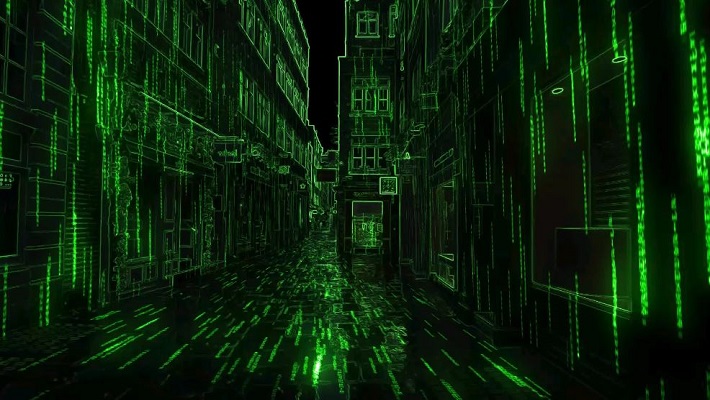
Do you remember the scene in The Matrix where the rebel leader Morpheus asks Neo to choose between a blue and a red pill and says, "You take the blue pill...The story ends, and thus you awaken in your bed, believing whatever you want to believe. The Matrix trilogy sparked many spin-off stories and conspiracy theories, and many people began to believe that we were living in a computer-simulated reality, as depicted in the film.
So it's been nearly 22 years since this iconic movie matrix got released which states clearly that the idea of reality is an illusion and that we're all actually lying in pods of fluid, feeding machines. Most people think it sounds fantastical--typical science fiction--but certain scientists and philosophers believe that the matrix, along with its long-awaited sequel, the matrix Resurrections, raised some serious questions about whether we are truly living in a computer simulation.
Does the Idea of Universe actually behave like a Computer Programme?

The idea of a matrix simulation, or a simulated reality created by a more advanced civilization, has been the subject of many science fiction stories and philosophical debates. While there is no scientific evidence to support the idea that we are living in a matrix simulation, it is worth exploring the arguments for and against its existence.
One of the main arguments in favor of the existence of a matrix simulation is the idea that the universe behaves like a computer program. The laws of physics that govern the behavior of matter and energy can be described mathematically, much like computer code. This has led some scientists and philosophers to suggest that the universe itself may be a simulation. Another argument in favor of the existence of a matrix simulation is the possibility of a post-human civilization. If a more advanced civilization were to create a simulation of our reality, it would likely be indistinguishable from the real thing. This idea is similar to the concept of a virtual reality, in which a computer-generated world is experienced as if it were real.
Arguments Revolving Around the Internet
However, there are also many arguments against the existence of a matrix simulation. One of the main arguments is the lack of scientific evidence to support it. While simulations are used in many scientific fields to study complex systems, they are based on well-understood physical laws and principles. There is no evidence to suggest that the universe itself is a simulation. Another argument against the existence of a matrix simulation is the idea that it is unfalsifiable. This means that there is no way to test the hypothesis that we are living in a simulation. Even if we were to discover anomalies in the laws of physics or other aspects of our reality, it would not necessarily prove that we are living in a simulation.
In addition, the idea of a matrix simulation raises many philosophical and ethical questions. For example, if our reality is a simulation, does that mean that our experiences and emotions are not real? And if the creators of the simulation are more advanced than us, do they have a moral responsibility to care for us and protect us from harm? While the idea of a matrix simulation may seem far-fetched, there are many real-world examples of how technology is already being used to create virtual realities that can be experienced as if they were real. Virtual reality technology allows users to enter computer-generated worlds and interact with them as if they were real, and augmented reality technology overlays computer-generated elements onto the real world. Furthermore, advances in artificial intelligence and robotics are blurring the lines between what is real and what is simulated. Robots and virtual assistants are becoming increasingly human-like in their behavior and appearance, raising questions about what it means to be human and whether a machine can ever truly replicate human consciousness.
In conclusion, the idea of a matrix simulation is a fascinating concept that has captured the imagination of many people. While there is no scientific evidence to support the idea that we are living in a matrix simulation, it raises many interesting and thought-provoking questions about the nature of reality, consciousness, and existence. Whether or not a matrix simulation exists, the question of what is real and what is simulated will continue to be debated and explored for many years to come.







